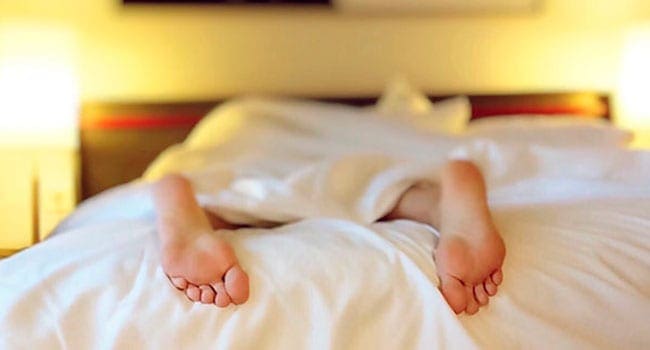We spend around a third of our lives asleep. We have been sleeping regularly since we were born, and sleep is an important part of our daily life, yet so little is known about it or the dreams we have while we sleep.
A bad night’s sleep can do a lot more damage to us than upset our mood in the morning. The short-term effects of a lack of sleep can mean poor performance at school or work. In the long-term, chronic sleep deprivation can cause serious health problems and increase the risk of a heart attack or an early death.
We have put together this list of some of the commonly held misconceptions about sleep that can actually do you more harm than good.
Most People Only Need Five or Less Hours of Sleep
This myth simply won’t go away and probably does the most harm to the public health of all our sleep myths.
All research conducted over countless decades, and on literally millions of test subjects, suggests that adult humans need to have between seven and nine hours sleep a night. This will keep you physically and psychologically well-balanced and reduce the risks of hypertension and heart attacks that come with regular sleep deprivation.
It Doesn’t Matter What Time of Day You Sleep
Many people believe that as long as you get some sleep, it doesn’t matter when, but this isn’t the case.
Our bodies follow a natural ‘circadian rhythm’ that helps our bodies know when to sleep to keep in sync with the natural world around us. Because of careers, our social lives, or new members of our families we don’t often get to sleep through the night, but this is when we should sleep. Some people struggle to sleep because of an uncomfortable mattress, and this can also be bad for our health. You can find a detailed overview here of some of the most comfortable and durable mattresses available.
Lying in Bed with Closed Eyes is as Good as Sleeping
This, it will come as no surprise to you, is a myth. It may feel like sleep, but it is nowhere close to the real thing.
Our bodies function very differently when we sleep, and it can’t be fooled by lying on a bed with your eyes closed. From our brains, to our heart and lungs, down to our digestive system, our organs all know when we sleep and act accordingly. If you know you’re awake, so do they. This is another myth that many doctors and sleep experts feel does a lot more harm than good.
Snoring Can Be Annoying, But It Is Harmless
Snoring is often a symptom of a larger problem, such as sleep apnea, as well as being a nuisance to other people trying to sleep in the home.
If you or someone you know snores often, and very loudly, it could be a sign that their airway is becoming blocked while they sleep, or that they are lying in an uncomfortable position while they sleep.
People with other health concerns, such as morbid obesity and high blood pressure, and smokers are at a higher risk of snoring and sleep apnea, and should consult their doctor if they suffer from excessive and loud snoring while they sleep.
The quality of your sleep can give you both positive and negative outcomes. Hopefully by debunking some of the sleep myths that exist, we have helped you to get a better night of sleep, and maybe shed some light on the effect that sleep can have on your health.
This content is a joint venture between our publication and our partner. We do not endorse any product or service in the article.


